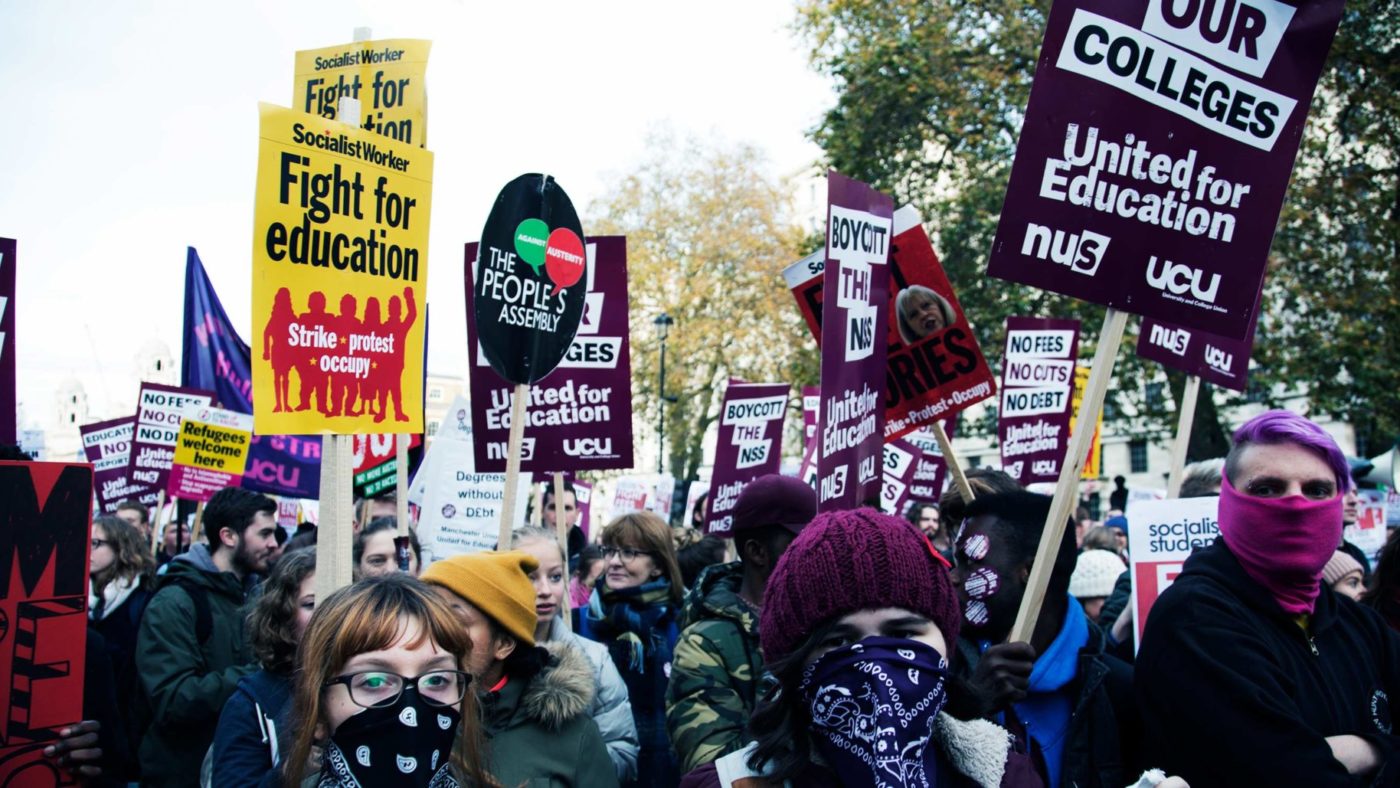Student life today is far more stressful than it was in the recent past. The increasing cost of higher education and uncertainty surrounding graduate employment prospects may be contributing to this. Students’ unions, whose aim is to improve the student experience, have a role in helping their members navigate this environment.
Some do this well through provision of academic representation, augmenting university careers services, and providing spaces where students can meet friends and relax. Many others, however, diminish the student experience by imposing all manner of social codes their members and spending time and money running campaigns on fringe political issues.
As we set out in our new report for the Adam Smith Institute, ‘State of the Unions’, SUs have discouraged students from such unsavoury activities as wearing fancy dress, clapping, whooping, and dressing in drag. Some have banned the sale of beef, others of newspapers they disapprove of. Some have sought to influence what lecturers are allowed to say to them. Their campaigns often focus on issues like demilitarisation, opposition to the government’s counter terrorism strategy, and divesting from the fossil fuel industry – all of which have very little to do with the student experience.
Moreover, there are instances of SUs restricting the activity of student societies, from blocking applications for new societies on political grounds, to banning the Officer Training Corps from displaying firearms and punishing societies for having a party with the ‘wrong’ theme. Some groups, like Jewish students, Conservatives and Christians feel particularly unwelcome.
What’s more, students are subjected to such treatment by SUs with no mandate, given that union election turnout hovers at around 10%. Very few students take part in these elections, and in some universities a significant proportion of those that take part do so because they have been given free pizza and doughnuts as reward – hardly the sign of a flourishing democratic system.
Despite this, SUs receive a steady stream of funding through block grants from their associated university. The sum total of SU block grant funding in the UK in 2019 is estimated at £164m, around half of which is financed by the taxpayer – the other half comes from the students, primarily through the loans system. This money supports the work of some 600 full-time and many more part-time student officers, a considerable proportion of whom will divert union resources towards activism. Around £4m of these finds its way to the National Union of Students, whose radical policies are set by delegates voted for by an estimated 3% of students.
Many SUs do provide meaningful services to students like running recreational and social facilities, bars, cafes, sports clubs, and representing them through providing universities with feedback on academic matters. Research we have conducted shows that that SUs that are more reliant on university block grants tend to perform their academic representation function worse than SUs with a greater focus on providing products and services that students actually like.
Any reform of students’ unions should therefore seek to conserve that which SUs do well and constrain activity that does not improve the student experience. The taxpayer should not be financing SU political activity, especially when those involved only represent a fraction of the student body. It should be possible for students to engage in political activity through a student representative council, but only if they pay for it themselves and if university recognition of students is subject to at least 50% turnout in elections.
The system of course and faculty representatives works well and should be retained. The practice of electing the leaders of these students (sabbatical officers) should not be done by a campus-wide ballot of students, who are not interested in student politics, but by course and faculty representatives who are familiar with the issues.
Ensuring a positive future for higher education is a hefty task – especially after the tumult of 2020 – and no one change will fix the system. But these reforms will go some way in ensuring that students’ unions contribute more towards improving the student experience, and less towards fringe groups that seek to use SU resources to further their own agenda.
Click here to subscribe to our daily briefing – the best pieces from CapX and across the web.
CapX depends on the generosity of its readers. If you value what we do, please consider making a donation.


